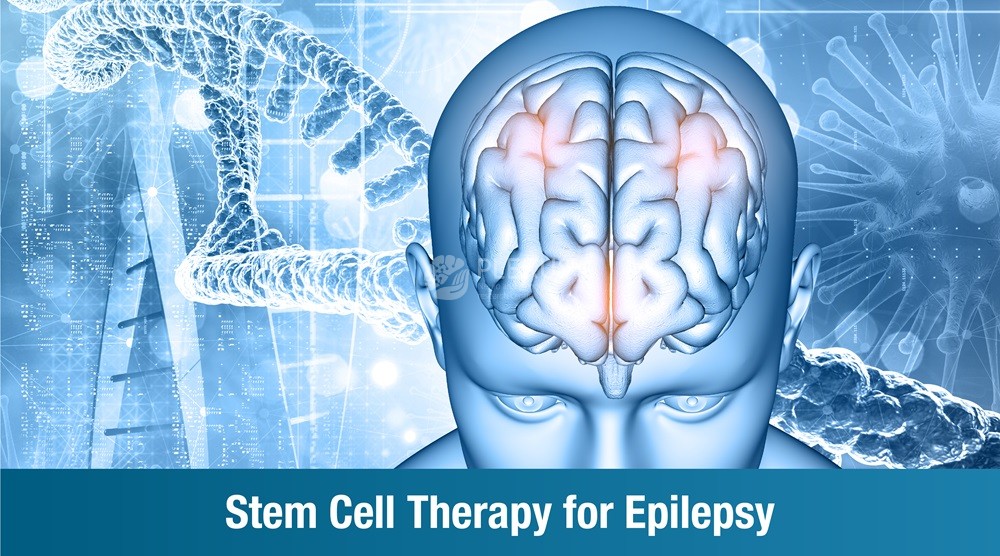
Epilepsy is a neurological disorder marked by recurrent seizures due to abnormal electrical activity in the brain along with loss of consciousness. It affects people of all ages. While many epilepsy patients find relief through medications and other traditional treatments, many of them are still battling with the symptoms of this disorder. Stem cell therapy has emerged as a potential breakthrough in epilepsy treatment, offering new hope for those whose seizures cannot be adequately controlled. Let’s read on to understand more about this revolutionary form of treatment.
What is epilepsy?
Epilepsy is a complex neurological condition that can manifest in various forms, including convulsions, loss of consciousness, or altered awareness. The exact cause of epilepsy is unknown. It could be due to genetics or due to brain injury. The condition affects the patient’s relationships, work and general safety. Managing epilepsy can be challenging, as not all patients respond well to available medications, and the side effects of these drugs can be debilitating.
The type of seizure depends on where the sensory disruption occurs in the brain, how it spreads and how much of the brain is affected and how long the episode lasts.
Read more about the different types of epileptic seizures here.
Stem cell therapy for epilepsy at Plexus
At Plexus, we have been able to effectively control seizures with proper use of the right medication, such as anti-epileptic drugs. However, in some cases, these drugs do not help as much as we would like them to. Sometimes seizures still occur or some patients cannot tolerate some drugs. In such cases, stem cell therapy can help manage the condition. It can help with regeneration of brain tissue. Stem cells will help reinstate normal neural activity and thus, reduce seizures.
The fundamental idea behind this therapy is to harness the regenerative potential of stem cells, and the human body’s natural ability to self-heal, to repair or replace damaged brain tissue and restore normal brain function. We use autologous mesenchymal stem cells (MSCs) that are harvested from the patient’s own body to achieve maximum results without the risk of immune rejection.
What are the potential benefits of stem cell therapy for epilepsy?
In a normal brain, there are neurons that excite cells and neurons that stop or inhibit the action of cells. There is a balance between these neurons that helps us to function normally. In a patient with epilepsy this balance is disrupted, during seizures. This abnormal circuit is what stem cell therapy targets to correct. Stem cell treatment aims to reduce these seizures by introducing a specific group of neurons with inhibitory functions. It aims to reduce the frequency or even the occurrence of seizures and restore any behavioral deficits caused by the condition.
Stem cell therapy holds a lot of promise in the management of epilepsy.
The advantages of stem cell therapy for epilepsy are manifold. Let’s take a closer look:
- Seizure Reduction: Stem cells can repair damaged neural circuits and promote healthy brain cell growth. In doing so, they may help reduce the frequency and severity of seizures.
- Neuroprotection: Stem cells protect the vulnerable regions of the brain from further damage caused by seizures.
- Anti-Inflammatory Properties: Stem cells possess anti-inflammatory properties that control/reduce inflammation in the brain.
- Customized Treatments: At Plexus, we offer customized regenerative rehabilitation for epilepsy, tailored to the specific needs of each patient, taking into account the underlying causes and the localization of brain abnormalities.
- Reduced Dependence on Anti-Epileptic Medication: Autologous stem cells are compatible with the patient’s immune system, since they are sourced from their body itself. This minimizes the risk of side effects, such as immune rejection, and allows for maximum results, that is improving the patient’s overall quality of life. This can urge more and more persons with epilepsy to opt for stem cell therapy as a viable treatment option.
Stem cell therapy for epilepsy has the potential to offer improved seizure control and a better quality of life for those living with this devastating condition. If you wish to know more about customizable treatment options, do reach out to Team Plexus today.
WhatsApp +91 89048 42087
Call +91 78159 64668 (Hyderabad) | +91 82299 99888 (Bangalore)
FAQs
Can epilepsy be cured by stem cells?
Stem cell therapy for epilepsy offers better seizure control by reducing inflammation in the brain. It offers relief from symptoms.
What is the most successful treatment of epilepsy?
By far, anti-epileptic drugs are the most successful form of treatment for epilepsy.
What are the new treatments for epilepsy 2023?
Stem cell therapy is the newest and most advanced form of treatment for epilepsy.
Can stem cells stop seizures?
Stem cells aim to restore normal function to the brain by introducing neurons with inhibitory functions. These neurons have the potential to reduce the frequency or even the occurrence of seizures.
Can I live a full life with epilepsy?
Absolutely! Epilepsy does not have you bog down. With the right type of medical and therapeutic interventions, you can lead a full life in spite of epilepsy diagnosis.










